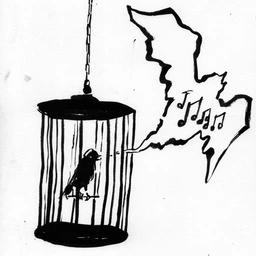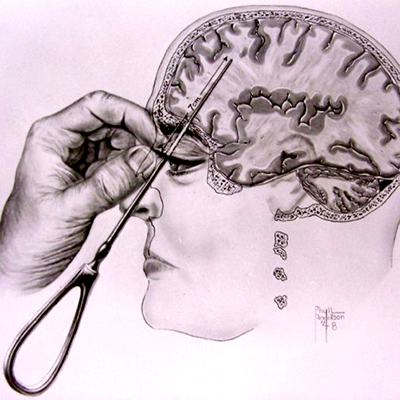Google has plunged the internet into a “spiral of decline”, the co-founder of the company’s artificial intelligence (AI) lab has claimed.
Mustafa Suleyman, the British entrepreneur who co-founded DeepMind, said: “The business model that Google had broke the internet.”
He said search results had become plagued with “clickbait” to keep people “addicted and absorbed on the page as long as possible”.
Information online is “buried at the bottom of a lot of verbiage and guff”, Mr Suleyman argued, so websites can “sell more adverts”, fuelled by Google’s technology.
The part about Google isn’t wrong.
But the second half of the article, where he says that AI chatbots will replace Google search because they give more accurate information, that simply is not true.
I’d say they at least give more immediately useful info. I’ve got to scroll past 5-8 sponsored results and then the next top results are AI generated garbage anyways.
Even though I think he’s mostly right, the AI techbro gameplan is obvious. Position yourself as a better alternative to Google search, burn money by the barrelful to capture the market, then begin enshitification.
In fact, enshitification has already begun; responses are comparatively expensive to generate. The more users they onboard, the more they have to scale back the quality of those responses.
ChatGPT is already getting worse at code commenting and programming.
The problem is that enshitification is basically a requirement in a capitalist economy.
Even if AI magically got to the point of providing accurate and good results, I would still profoundly object to using it.
First, it’s a waste of resources. The climate impact of AI is enough of a reason why we should leave it dead until we live in a world with limitless energy and water.
Second, I don’t trust a computer to select my sources for me. Sometimes you might have to go through a few pages, but with traditional search engines at least you are presented with a variety of sources and you can use your god given ability of critical thinking.
I don’t trust a computer to select my sources for me.
I’m not sure what you think modern search engines do, but this is pretty much it. Hell, all of the popular ones have been using AI signals for years.
You can request as many sources from an AI as you would get from Google.
Of course there are always challenges, especially with how results are ranked. I have been extremely dissatisfied with the development of search engines for years now. I find Duckduckgo to at least be less bad than Google. Currently I’m checking out Kagi, which at least lets me rank sources myself. Still on the fence though - it does seem to flirt more with AI than with transparency, which has me worried.
But absolutely, it’s not that I think the current state of search engines is great either - it just seems to me everything is getting worse and the Internet has entered a death spiral between AI and the enshittification of social media.
Then again, maybe I just reached that age where you start hating everything.
That’s LLMs, which is what is necessary for Chat-AI (the first “L” in there quite literally stands for Large).
Remove the stuff necessary to process natural human language and those things tend to be way smaller, especially if they’re just trained using the user’s own actions.
The climate change has become the new CP go to argument to condone the stupidest reasoning. Just like blocking Torrent sites to prevent CP, let’s block AI to prevent climate change.
I mean most top searches are AI generated bullshit nowadays anyway. Adding Reddit to a search is basically the only decent way to get a proper answer. But those answers are not much more reliable than ChatGPT. You have to use the same sort of skepticism and fact checking regardless.
Google has really gotten horrible over the years.
Most of the results after the first page on Google are usually the same as the usable results, just mirrored on some shady site full of ads and malware.
I already go to ChatGPT more than Google. If you pay for it then the latest version can access the internet and if it doesn’t know the answer to something it’ll search the internet for you. Sometimes I come across a large clickbait page and I just give ChatGPT the link and tell it to get the information from it for me.
Do you fact-check the answers?
It depends what you’re using it for as to whether you need to fact check stuff.
I’m a software developer and if I can’t remember how to do an inner join in SQL then I can easier ask ChatGPT to do it for me and I will know if it is right or not as this is my field of expertise.
If I’m asking it how to perform open heart surgery on my cat, then sure I’m probably going to want several second opinions as that is not my area of expertise.
When using a calculator do you use two different calculators to check that the first one isn’t lying?
Also, you made a massive assumption that the stuff OP was using it for was something that warranted fact checking.
I can see why you would use it. Why would I want to search Google for inner joins sql when it is going to give me so many false links that don’t give me the info in need in a concise manner.
Even time wasting searches have just been ruined. Example: Top Minecraft Java seeds 1.20. Will give me pages littered with ads or the awful page 1-10 that you must click through.
Many websites are literally unusable at this point and I use ad blockers and things like consent-o-matic. But there are still pop up ads, sub to our newsletter, scam ads etc. so much so that I’ll just leave the site and forego learning the new thing I wanted to learn.
The new release of GPT-4 searches Bing, reads the results, summarizes, and provides sources, so it’s easier to fact check than ever if you need to.
It’s pretty trivial to fact check an answer… You should start using this kind of bots more. Check perplexity.ai for a free version.
Sources are referenced and linked.
Don’t judge on chatgpt free version
It’s pretty trivial to fact check an answer
People don’t do it though and often parrot bullshit.
People who do so aren’t smart enough to use internet anyway. With or without AI it wouldn’t change anything for them, they stay stupid and will continue acting stupidly
Perplexity.ai has been my go to for this reason.
It often brings up bad solutions to a problem and checking the sources it references shows it regulary misses the gist of these sources.
There sources it selects are often not the ones I end up using. They are starting point, but not the best starting point.
What it is good for is for finding content when I don’t know the terminology of the domain. It is a starting point ready to lead me astray with exquisitely written content.
Find trustworthy sources and use them.
It is more of a proof of concept at the moment, but it shows the potential
That’s what’s usually gets said about lots of alternative fusion energy generation methods that later turn out to be impossible to have net-positive energy generation.
And this is just one example. Another example: tons of “neat concept that shows potential” medical compounds end up dropped at the medical testing stage because of their nasty side effects or it turns out their “positive” effects are indistinguisheable from the placebo effect.
The point being that you can’t actually extrapolative from “neat concept that shows potential” even to merelly “will work”, much less to “will be a great success”.
PS: Equally, one can’t just say it’s not going to be a great success - being a “neat concept that shows potential” has a pretty low informational content when it comes to predicting the future, worse so when there are people monetarilly heavilly invested into it who have a strong interest in making it look like a “neat concept that shows potential” whilst hiding any early stage problem as they’re activelly poluting the information space around it.
You are mixing sci-fi level of cutting edge basic research (fusion), with commercial products (chatgpt). They are 2 very different type of proof of concepts.
And both will likely revolutionize human society. Fusion will simply commercially become a thing in 30/50 years. AI has been on the market for years now. Generative models are also few years old. They are simply becoming better and now new products can be built on top of them
(btw I already use chatgpt 4 productively every day for my daily work and it helps me a lot)
give it time, algos will fuck those results as well
They’ll need to make money with a cheap cost-per-sale, so they’ll put ads on the site. Then they’ll put promoted content in the AI chat, but it’s okay because they’ll say it’s promoted. Eventually it won’t even say it’s promoted and it will just be all ads, just like every other tech company.
Why? Because monetization leads directly to enshittification, because the users stop being the customers.
When I tried it it was never able to give me the sources of what it said. And it has given me way too many made up answers to just trust it without reasons. Having to search for sources after it said something has made me skip the middle man(machine).
You probably tried the free version. Check perplexity.ai to see how the paid version of chatgpt works. Every source is referenced and linked.
This guy is not talking about the current version of free chatgpt. He’s talking of the much better tools that will be available in the next few years
Yeah, because people selling AI products have a great track record on predicting how their products will develop in the future. Because of that, Teslas don’t have steering wheels any more, because Full Self Driving drives people incident-free from New York to California since 2017.
The thing with AI development is, that it rapidly gets to 50% of the desired solution, but then gets stuck there, not being able to get consistently good enough that you can actually rely on it.
I don’t really understand what it means. If the product is unreliable people won’t use it, and everything will stay as it is now. It’s not a big issue. But It is already pretty reliable for many use cases.
Realistically the real future problem will be monetization (which is causing the issues of Google), not features
Well, here’s the thing. How often are you willing to dismiss the misses because of the hits? Your measure of unreliability is now subject to bias because you’re no longer assessing the bot’s answers objectively.
I don’t expect it to be 100% correct. I have realistic expectations built on experience. Any source isn’t 100% reliable. A friend is 50% reliable, an expert maybe 95. A random web page probably 40… I don’t know.
I built up my strategies to address uncertainty by applying critical thinking. It is not much different than in the past. By experience, chatgpt 4 is currently more reliable than a random web page that comes in the first page of a Google search. Unless I exactly search for a trustworthy source, such as nhs or guardian.
The main problem is the drop in quality of search engines. For instance, I often start with chatgpt 4 without plugins to focus my research. Once I understand what I should look for, I use search engines for focused searches on official websites or documentation pages.
ChatGPT powers Bing Chat, which can access the internet and find answers for you, no purchase necessary (if you’re not on edge, you might need to install a browser extension to access it as they are trying to push edge still).
Do you fact-check the answers?
That’s such a strange question. It’s almost like you imply that Google results do not need fact checking.
They do. Everything found online does.
With google, it depends on what webpage you end up on. Some require more checking than others, which are more trustworthy
Generative AI can hallucinate about anything
There are no countries in Africa starting with K.

LLMs aren’t trained to give correct answers, they’re trained to generate human-like text. That’s a significant difference.
They also aren’t valuable for asking direct questions like this.
There value comes in with call and response discussions. Being able to pair program and work through a problem for example. It isn’t about it spitting out a working problem, but about it being able to assess a piece of information in a different way than you can, which creates a new analysis of the information.
It’s extraordinarily good at finding things you miss in text.
Yeah. There’s definitely tasks suited to LLMs. I’ve used it to condense text, write emails, and even project planning because they do give decently good ideas if you prompt them right.
Not sure I’d use them for finding information though, even with the ability to search for it. I’d much rather just search for it myself so I can select the sources, then have the LLM process it.
How is this relevant to a discussion about fact checking? People are so weird about AI
If you knew nothing about Africa, congratulations, you don’t know that Kenya exists. It’s a microcosm of what would be a major problem if you don’t fact-check the bot.
Woosh
deleted by creator
Agree.
I found it more tempting to accept the initial answers I got from GPT4 (and derivatives) because they are so well written. I know there are more like me.
With the advent of working LLMs, reference manuals should gain importance too. I check them more often than before because LLMs have forced me to. Could be very positive.
Its already happening at my work. Many are using bing AI instead of google.
Don’t worry they’ll start monetizing LLMs and injecting ads into them soon enough and we’ll be back to square one
because they give more accurate information, that simply is not true.
From my experience with BingChat, it’s completely true. BingChat will search with Bing and summarize the results, providing sources and all. And the results are complete garbage most of the time, since search results are filled with garbage.
Meanwhile if you ask ChatGPT, which doesn’t have Internet access, you get a far more sophisticated answer and correct answer. You can also answer follow up questions.
Web search is an absolutely terrible place for accurate information. ChatGPT in contrast consumes all the information out there, which makes it much harder for incorrect information to slip in, as information needs to be replicated frequently to stick around. It can and often is still wrong of course, but it is far better than any single website you’ll find.
And of course all of this is still very early days for LLMs. GPT was never build with correctness in mind, it was build to autocomplete text, everything else was patchwork after the fact. The future of search is AI, no doubt about that.
Chatgpt flat out hallucinates quite frequently in my experience. It never says “I don’t know / that is impossible / no one knows” to queries that simply don’t have an answer. Instead, it opts to give a plausible-sounding but completely made-up answer.
A good AI system wouldn’t do this. It would be honest, and give no results when the information simply doesn’t exist. However, that is quite hard to do for LLMs as they are essentially glorified next-word predictors. The cost metric isn’t on accuracy of information, it’s on plausible-sounding conversation.
Ask chatgpt “tell me the biography of the famous painter sndrtj” to see how good the bot is at hallucinating an incredible realistic story that never happened.

Oh, they fixed that! But I see you’re using v4.
You don’t even have to make stuff up to get it to hallucinate. I once asked chat gpt who the original bass player was for Metallica was, and it repeatedly gave me the wrong answer, and even at one point said “Dave Ellefson.”
I suspect that client-side AI might actually be the kind of thing that filters the crap from search results and actually gets you what you want.
That would only be Chat-AI if it turns out natural language queries are better to determine the kind of thing the user is looking for than people trying to craft more traditional query strings.
I’m thinking each person would can train their AI based on which query results they went for in unfiltered queries, with some kind of user provided feedback of suitability to account for click-bait (i.e. somebody selecting a result because it looks good but it turns out its not).
I dunno. There have been quite a few times where I am trying to do something on my computer and I could either spend 5 minutes searching, refining, digging through the results…or I can ask chatgpt and have a workable answer in 5 seconds. And that answer is precisely tailored to my specifics. I don’t have to assume/research how to modify a similar answer to fit my situation.
Obviously it’s dependent on the types of information you need, but for coding, bash scripting, Linux cli, or anything of that nature LLMs have been great and much better than Google searches.
Okay but the problem with that is that LLMs not only don’t have any fidelity at all, they can’t. They are analogous to the language planning centre of your brain, which has to be filtered through your conscious mind to check if it’s talking complete crap.
People don’t realise this and think the bot is giving them real information, but it’s actually just giving them spookily realistic word-salad, which is a big problem.
Of course you can fix this if you add some kind of context engine for them to truly grasp the deeper and wider meaning of your query. The problem with that is that if you do that, you’ve basically created an AGI. That may first of all be extremely difficult and far in the future, and second of all it has ethical implications that go beyond how effective of a search engine it is.
Did you read my last little bit there? I said it depends on the information you are looking for. I can paste error output from my terminal into Google and try to find an answer or I can paste it into chatgpt and be, at the very least pointed in the right direction almost immediately, or even given the answer right away vs getting a stackoverflow link and parsing the responses and comments and following secondary and tiertiary links.
I absolutely understand the stochastic parrot conundrum with LLMs. They have significant drawbacks and they are far from perfect, but then neither is are Google search results. There is still a level of skepticism you have to apply.
One of the biggest mistakes people make is the idea that LLMs and websearching is a zero sum affair. They don’t replace each other. They compliment each other. Imo, google is messing up with their “ai” integration into Google search. It sets the expectation that it is an equivalent function.
I don’t need perfect. I need good enough
Sure but if that becomes the norm then a huge segment of the population will believe the first thing the bot tells them. You might be okay, but we’re talking about an entire society filtering its knowledge through an incredibly effective misinformation engine that will lie rather than say “I don’t know”, because that simple phrase requires a level of self-awareness that eludes a lot of actual people, much less a chatbot.
That’s already a problem. The thing j think about is what will serve me better. Google or chat AI. The risk of bad information exists with both. But an AI based search engine is something that will be much better at finding context, retiring results geared towards my goals and I suspect less prone to fuckery because AI must be trained as a whole
Except we already know that LLMs lie and people in general are not aware of this. Children are using these. When you as a person have to sift through results you get a sense of what information is out there, how sparse it is, etc. When a chatbot word-vomits the first thing it can think of to satisfy your answer, you get none of that, and perhaps you should be aware of that yourself. You don’t really seem to be, it’s like you think the saved time is more important than context, which apparently I have to remind you - the bot doesn’t know context.
When you say:
an AI based search engine is something that will be much better at finding context
It makes me think that you really don’t understand how these bots work, and that’s the real danger.
We’re talking in this thread about this wider systemic issue, not just what suits you personally regardless of how much it gaslights you, but if that’s all you care about then you do you I guess ¯\_(ツ)_/¯
Lie is a weird way to describe it. They give you an answer based on probabilities. When they’re off base they call it hallucinating. Its not lying its just lacking in data to give an accurate and correct a answer which will get better with more training and data. Everything else we have so far gets worse. Google isn’t what it was 15 years ago.
I use chatgpt every day to find out answers over google. Its better in almost every single way to get information from and I can only imagine what it’s capable of once it can interface with crawlers.
The language you’re using to speak on this issue makes it seem like theres a personal vendetta against LLM. Why people get so mad at a new tool is always fascinating.
If you aren’t paying for chatgpt, give a look to perplexity.ai, it is free.
You’ll see that sources are references and linked
Don’t judge on the free version of chatgpt
Edit. Why the hell are you guys downvoting a legit suggestion of a new technology in the technology community? What do you expect to find here? Comments on steam engines?
Wow, it’s really good. Who knew that asking a bot to provide references would immediately improve the quality of the answers?
deleted by creator
If you try “copilot” option, you get the full experience. It’s pretty neat because it allows for brainstorming.
It is still a very “preliminary version” experience (it often gets stuck in a small bunch of websites), because the whole thing is just few months old. But it has a lot of potential
Google?? No, not Google. Capitalism. The same forces that drove the internet’s growth are making it so much worse than it could be. Profit motive trumps everything and drives the hellscape of engagement monetization
Yeah, let’s absolve the individuals working at the companies who did this from all responsibility by blaming an abstract concept instead.
Capitalism may be the game, and Google may have only been one of the players, but they’re still playing dirty.
Because if Google didn’t exists, another company would have done the exact same. So yes, I think its pretty accurate to blame the system that make this business plan the only one to succeed.
So the people who made those decisions just get a free pass then?
Come on, let’s hold people accountable. The system sucks, I agree, but the issues are massively exacerbated by the rich and powerful not being held accountable. So don’t let them hide behind economic ideologies or legal entities; point your finger at them.
both of you can be right at the same time. just saying.
But which one do you think will lead to change? Blaming abstract concepts, or holding the people who are responsible accountable?
I see no value in denouncing capitalism.
Not defending Google but the truth is legally, the directors at Google have to drive shareholder value and thus every legal opportunity must be explored. Not just a Google issue as many nations have similar laws that drive this sort of behaviour. Money wants to make money and the laws are structured in their favour.
deleted by creator
Exactly and yet few are really taking about this.
There are two opposing positions in this thread and I wholeheartedly agree with both of them.
Capitalism isn’t the problem. It’s corruption. So rather than fix the problem and hold the corrupt individuals accountable, you’d rather stop the symptom. But then the source of the problem is still there and manifests itself elsewhere. But it’s easy just putting bandaids on things, so I can see why that would be the crux of your efforts.
Corruption is the natural end result of Capitalism.
Do you really expect that in a society were “Greed is good” Lawmakers and Law-enforcers would magically not be seeking to maximize personal upsides like everybody else and positions of power within the State that could be used for such personal upside maximization wouldn’t attract smooth talkers seeking to become filthy rich???!
You need to be pretty naive to expect that an environment where the greatest measure of success and discriminator for receiving superior treatment is having lots of money, the people who can get power from salesmanship (which is what politicians are: selers of themselves and of ideas) and being mates with said salesman (i.e. those who get nominated to positions by the politicians) would not be driven by maximizing their personal wealth and the prestige and superior treatment that is given to the monyed.
Given human nature, Capitalism without widespread corruption is about as realistic Communism (the whole utopia of everybody having the same, not the bullshit that the PRC and Soviet Union deem “communism”) and, funnilly enough. they both fail for exactly the same reason: Greed.
I’d have to agree. Morals and ethics (and the lack thereof) are what drives this perversion and the same can be seen in other economic models tried in the past like communism.
One might argue that companies are forced to do this “because of the shareholders” but in the past companies weren’t always solely focused on short-term gain with long-term term consequences (enshittification) and they made their shareholders plenty of money for longer. It seems the focus now is to burn bright and die out fast, but that path isn’t inherent to capitalism itself.
Well let’s move on from the abstract concept and blame the people uphldng the system.
deleted by creator
Yeah, this guy just seems butthurt. If anything, Google was a prime mover and “Good guy” for about a decade or so. The Internet was fundamentally broken around the mid to late 2000s when broadband became ubiquitous and social media became popular. Tons of people online and zero way to control anything. The Internet and WWW simply weren’t built for this scale.
I think it’s the centralization of services that broke what the internet was in the mid-00s, and increasingly monetized every facet of it. What was internet culture in the 00s became nerd identity in the late 00s-early 10s, which over the decade became completely appropriated and commodified by capital interests.
More of the internet now is intentionally constructed to cater to a market demand. In the 00s anyone could afford to run a publicly accessible web page fully designed by them. Now that’s just having a profile on an existing social media site. Google was incredible because it helped you find the most niche type of internet site, but when everything became so consolidated it pivoted to advertising, cloud services, and venture capital. Now it’s just a monster that seeds any technology they think would help them make profit and focuses the entire sector around that motivation.
More people are now on the internet to turn a profit as well, because it’s now the primary place for business. Things you used to do on the internet for fun in your spare time are now career paths.
Not to mention he sold his company to Google. So he’s as much a contributor as Google itself.
Sure. But also the tech bro culture of “I’m not responsible for the consequences of my choices, so long as there is a computational layer between those consequences and me”.
Silicon Valley, and it’s legion of brown nosers, all love to believe that “I didn’t think…” is a valid excuse, not a self-indictment.
culture of “I’m not responsible for the consequences of my choices, so long as there is a ~~computational ~~layer between those consequences and me”.
yeah because that’s totally unique to techbros who definitely ushered it in and not simply most capitalists in general
Removed by mod
Removed by mod
Removed by mod
Removed by mod
99% of the time it has.
Before Google there used to be shitty search engines like Altavista and Yahoo!, and there were many of them so you had to also use a “meta” search engine which was basically a program running locally on your computer which would take your search query and forward it to a dozen search engines and then shows you the aggregated results. That was one way of combining their strengths let’s say since each one of them was complete shit.
The results were still shit though because many websites were gaming those search engines as SEO at the time was extremely easy: the search engines simply looked at your meta tags (where you could spam your keywords) and the keyword density of your pages.
Then Google came with its PageRank algorithm and obsoleted the meta tags altogether. Keyword density became also less important. Google basically assigned a score manually to a dozen trustworthy and high quality websites and then let those scores propagate with some decay through its graph representing all webpages it indexed and the links between them, so if a website A with a PageRank of 10 for example linked to your website B, you’d inherit part of that PageRank (how much will depend on how many outgoing links website A has, the more outgoing links it has, the less your website B will get). It was basically a measure of trustworthiness/quality and they then ranked the webpages in their results mainly according to that score.
Things went amazingly well for a few years and no one missed the old search engines, then the SEO community found a way to abuse that new algorithm again and the idea was very simple: massively exchange links and even buy them from platforms like TextLinkAds (it’s dead now but you could look it up on Wikipedia). So we went back to the shitty results again.
Then you also have another big trouble maker: Google AdSense. The idea of this thing was to pay website owners if they accept to display Google’s ads and they’d get paid something proportional to the number of clicks/impressions the ads would get on their website. The concept was okay, website owners could make some money, Google also wins, and the ads were mostly textual and none of the annoying popup ads you’d see at the time. Then it didn’t take long for people to abuse that system too, especially with people like Joel Comm shilling the idea of making websites purely for AdSense and retiring from them, people began creating spammy websites with garbage content that’s filled with keywords just so that they can put Google AdSense ads on them, those websites were called “Made For Adsense” (MFA), and that immediately polluted the search results because you started having millions of them.
Sure Google made improvements later on and incorporated AI to have the search engine also understand the content of the webpages, which in theory should help with relevance, but due to the cat & mouse between Google and the SEO (& the MFA) community things are still shitty and the only way you can get very good results today is if you insert a
site:stackoverflow.comorsite:reddit.comat the end of your search query.We’ve come full circle. Back when search sucked before you had to remember the best site to search. Creating better queries is always a good skill.
Thank you for this beautiful yet sad journey! TIL!
This was very informative.
I switched to DuckDuckGo and have had zero issues I had on Google that would require any additional filters.
Ive had to start putting ublock origin on cuatomers systems by default. The web has become a far worse cesspool for scams than what it was a few years ago. The ads blend in with real content. The internet is a shit hole now.
Seriously, browsing the internet without an adblocker is a horrible experience. So Firefox with ublock origin is my go to.
(aside of social network’s disinformation, conspiracies, hate breeding and false news) this is prime example of what the internet ended up as, to a regular user: how-i-experience-web-today.com
I lol’d, this is great and too fucking accurate.
He said search results had become plagued with “clickbait” to keep people “addicted and absorbed on the page as long as possible”.
It’s not just Internet searches. Video games are designed psyop-like as well now, all to drive engagement, and more profits.
At this point we need legislation so companies cannot make products that are mentally manipulative and detrimental to their customers.
They’re getting dangerously close to “drug pushers” territory.
“dangerously close”?
“There are only two industries that call their customers ‘users’: illegal drugs and software.” – Edward Tufte
“There are only two industries that call their customers ‘users’: illegal drugs and software.” – Edward Tufte
lol! I had never heard of that quote before now, ty for sharing!
This has been going on for decades and Blizzard started using it almost exclusively with World of Warcraft. They made the game a virtual Skinner Box (look it up and read about the experiments if you’ve never heard about it, pretty much animals will prefer to do things that they derive pleasure from instead of necessary things, like eating), and other companies followed suit. Then loot boxes and IAPs became a thing.
This has been going on for decades
It seems like it’s a recent development in this decade, at least an accelerated form of it.
Almost like recently evolved in corporations got together and decided enmass to start treating their customers more like things to exploit.
Less win-win, and more win-lose.
It’s absolutely gotten worse, but it’s been a thing for decades.
He said search results had become plagued with “clickbait” to keep people “addicted and absorbed on the page as long as possible”.
No, that’s the advertising that did that, the search results made a whole field of “SEO” possible which aimed to make the least useful page show up first in the results,
SEO might be the clearest example of Goodhart’s law to ever exist
Having a monopoly creates fewer indicators for the market and create problems
SEO was a problem before Google search became uniqutous
And if you follow the chain of causation to the top what do we find?

Yeah…not so simple.
Our system based on infinite growth for the investors is what fucks everything up. The incessant need for MORE places pressure on companies to fuck someone over for money once the initial innovative growth stage ends and the market gets saturated. They buy or crush what competitors they can to squeeze the market. Usually the employees get it first with hiring cheaper labor, reduction in fringe and real benefits, rising costs for existing benefits, etc. Then the consumer gets hit next with enshittification. Shittier services, harder to access services, unbundling, more fees, shittier products, etc. often compounded with more in-your-face marketing.
Hmmm, someone could write a book about this!
And call it “The Money” or something.
Someone wrote a book about this.
You could make a religion out of this!
Another good examples of this I feel is how netflix is doing (and disney+ now as well). Year over year profits for shareholders have ruined what used to be good (or at least descent) businesses.
I figure it’s like cable companies. They get you hooked with a low price that puts the squeeze on competitors, then slowly jack up the fees on existing customers. It’s a safe bet when peer companies are also raising prices because where can the customers jump ship to that isn’t the exact same enshittified service? Plus, if there’s a series they’ve got you hooked on, are you going to want to leave or just rationalize that nobody else is better?
IMO we’re going to see more “subscribe for [extended time period]” and save $2/mo or maybe even timed contracts with abusive cancellation fees to keep customers on the hook.
The modern stock market sucks ass. I’m convinced that most of the problems with companies is tied to focusing on stock price.
how would that situation have played out without capitalism?
Not everything is 100% capitalism or 0% capitalism In this case, unregulated capitalism and the basic human greed are responsible for this situation. Everybody wants to make a quick buck, never mind the consequences Also a full capitalist system would not have invented the internet as we know it or the World Wide Web or even the micro computing industry
Also a full capitalist system would not have invented the internet as we know it
We’d have had CompuServe, only bigger. Subscription only, walled garden environments.
Might have got something close to modern ubiquity with cable companies bundling search and forum functions in with the video, but it would still be heavily monetised and tightly controlled.
The purest Capitalism is Unregulated Capitalism: Regulated Capitalism means that there is some other ideology (in the basic sense of “set of ideas”) guiding the decisions about the where and how to regulate said Capitalism and having the power to impose itself on Capitalism (otherwise it wouldn’t be “regulating” it, just “advising” it, which would be promptly ignored) hence above it.
The problem is exactly that the dominant political system we’ve had for the last 4 decades, often known as neoliberalism, is all about removing regulations on Capitalism (hence neoliberalism), so a movement to make Capitalism the one and only political ideology with any real power for every and all political decisions in Society, not merelly the ones related to Trading. This is why it’s now common for mainstream politicians to harp all about “doing what’s best for businesses”, unconditionally and never once using the caveat that Society should only help businesses which are good for Society.
The problem is exactly that we’ve mostly moved to 100% Capitalism, with no other ideology above it providing oversight and correcting its problems.
Maybe Capitalism does work well as a means to optimize resource allocation and bottom-up economic coordination for optimal results in some markets, but it most certainly doesn’t work well at maximizing outcomes for the greatest number, in terms of systemic survival (Capitalism brough up Polution, which it most definitelly wasn’t solved by it, and now Global Warming) and doesn’t even seem to work well in markets which aren’t highly liquid with no negative externalities (i.e. naturally very competitive and non poluting or otherwise damaging).
Nope, Chuck Testa.
I know I’m dreaming here, but central internet services like google search and youtube should be utilities controlled by the public.
The video pool that Youtube draws from, generated by the public, should be public property, hosted on public servers, internationalized somehow, with an opensource market of frontend interfaces and algorithms to deliver that content to people, instead of one youtube algorithm and one interface designed to meet the profit incentives of google. People should be free to use the algorithm and interface they find most useful.
This was started over two decades ago, but never came about because the copyright cartel destroyed it. It was called peer to peer (p2p) tech.
The cartel even tried to pass laws which would allow them to control what media you could have on your computer. (The SSSCA and later CBDTPA) This is where the term Digital Rights Management came from.
Former govt IT employee here. Trust me, you really don’t want the govt in charge of media platforms. So what’s the alternative? Well, at least in the USA, we have this idea of publishers and platforms baked into law, however, it’s mostly ignored because right now because the govt and media are on the same side. (Heyoo! The fourth estate aligns with the fifth column.) What we need is to fortify that idea AND entrench net neutrality into a formal perpetual law AND codify all wireless and wired communications as public utilities.
That’s genius.
DDG to the rescue! It’s astounding how in this day and age, duckduckgo gives much more meaningful results than google. Exception made for local businesses, but for technical info and issues, DDG is way better.
I have noticed this too, DDG is giving me more of what i want, google always disappoints with random an unrerlated resutls, Some of the resultso of DDG are not even visible in first page of google results.
Obligatory mention of Kagi (which is actually brilliant).
Mmm, but what’s their plan to resist enshittification? After all, Google started out as “fundamentally different, user-centric.” What will Kagi do when their market penetration peaks and the business managers demand more growth?
You have to pay for kagi so they are not incentivized to serve ads. They are incentivized to give you a good set of search results so you keep paying.
Lots of services are both paid and still show ads. Like cable TV
And Microsoft Windows.
They’re not market-leading, but if they would be why wouldn’t they enshittify?
Just curious, in the hypothetical situation that 100% of users on the web used Kagi how is it any different? They’ll demand more growth at that point but how would they achieve it? I don’t see how paying for the service avoids the issue of the product becoming worse as a result of peak market penetration and needing new methods of growth
Well, if your argument is: “any company that becomes a monopoly will abuse monopoly power”, then sure I agree with you. You got me there!
My argument is: “given a reliable financial alternative to advertising, a company will be able to resist enshitification for a long time, as long as there is no absolute tyrannical monopoly.”
I assumed the last part was implied and I’m sorry for the confusion!
Makes sense, but yea it didn’t really answer the overall question of “if it hits peak market penetration how will it avoid going the Google route” since google also started with the same premise. I suppose the answer is hope it doesn’t become a monopoly
It’s also privately owned by one guy, so it doesn’t have to submit to investor pressure.
Steam, for example, is basically a monopoly for PC game sales, but hasn’t enshittified because it is privately owned.
Exactly. The simple fact is, people need to get more willing to pay for things with money instead of personal data. Nothing is free, but we like the idea that things don’t cost money, and instead we’ve allowed corporations to literally buy and monetize our very selves.
Problem is, a lot of people don’t have a lot of money because of how the world has been allowed to go. Everything is funnelled towards the worst people who go unpunished somehow. There needs to be an uprising or something.
They charge an assload to use their service.
I’ve used it this month a bit for the free 100 searches, but found it rather similar to my Google results. Can someone enlighten me in how they provide a better service?
I find the results to be cleaner and more relevant at least. With Kagi the relevant link is usually first or second link (like Google used to be) and the same search on Google I sometimes have to scroll down about 3-4 pages till I get to something relevant. Worse some of the ads Google is pushing to the top are misleading or completely contrary to what I’m looking for.
Kagi allowing me to ban domains (bye bye pinterest) and boost others has also been pretty helpful.
$5/mo
… per person.
Or $20 for 6 in your house. $240/yr for your family to use a search engine.
I mean… Come on! There’s no way that’s under 95% profit.
Unfortunately DDG has gone downhill quite a lot in the last year or two.
Exception made for local businesses,
It’s funny you say that, because in the last year or so suddenly my search results are being polluted with completely unrelated links to local businesses that don’t even contain a single one of my search terms.
They’ve obviously struck some deal where they’re shoehorning these ads into search results now. Very frustrating because they serve them as regular links so they bypass adblockers.
Really scummy move on their part, and it’s made their service worse to boot.
I feel Kagi does both things
I mean, I know David DeGea is a good keeper but I’m not sure he can save the internet too.
I heard lot of complaints of google search and seen the decline, but it’s like it got significantly worse in the last 1-2 years. I read it’s not just ads and clickbait/seo “articles”, but google is editing your queries without your knowledge, so they can milk more money out of their advertisers.
It’s mostly unusable now if you want to search for smg new, I just use it to jump to already known pages (e.g. google “vodafone” to jump to the page with a few clicks an pay my bills, often simpler than typing/bookmarking).
but google is editing your queries without your knowledge, so they can milk more money out of their advertisers.
That came from a wired article which was quietly retracted because the author had misunderstood a slide from the Google anti trust trial and had the meaning nearly backwards.
What Google is actually doing is allowing advertisers to match keywords to common synonyms and other relevant keywords. If you search for (insert brandname) infant sleepwear for example Google will also show ads from adverts from companies who selected the keywords “baby pajamas”. And that specific keyword replacement was only relevant to advertising"…
Google has long been transparent about the fact they interpret the meaning of keywords for searches to try to improve their relevance, and if you think about it if Google was replacing low value keywords with higher value ones it would be obvious, as generic searches would only turn up stuff from luxury brands and ads wouldn’t have broad keyword matching.
There are plenty of things to blame Google for, the low return on advertising that publishers get and the increasing need for the entire Internet to be locked behind millions of different paywalls, SEO optimization, click bait bullshit, link farms, but one of them isn’t replacing keywords to maximize value.
What Google is actually doing is allowing advertisers to match keywords to common synonyms and other relevant keywords.
So they ARE replacing search terms. Or at least adding to them.
And that specific keyword replacement was only relevant to advertising"…
So they ARE doing it make more money.
This was a good explanation but it doesn’t really refute his point.
Except for the fact that they aren’t replacing keywords on the user end, simply matching advertiser keywords to a broader range of keywords specifically for the ad results.
Claiming they are replacing user keywords for higher value ones is absolutely incorrect, which is what the article they got that info from specifically claimed before it was retracted.
They aren’t taking watch searches and showing only luxury brand results, they are taking luxury watch searches and showing generic ads for “watches” alongside the relevant search results through the normal Algorithm which ties to find what it thinks is most relevant to those keywords.
That latter one is something all search engines do and without doing so they wouldn’t be very useful to the average person who doesn’t know about search operators and advanced search refining tools… Simple keyword matching is too easily tricked by the SEO industry.
Compare to Amazon.com. Same thing. Ever less relevant searches in favor of who paid most to promote their products (usually random Chinese company with super cheap low quality products). Nowadays even if you search for a specific brand and model, it will often be buried by crap. And there is no way around it with advanced search parameters or filters.
It’s a shame, I remember when Google literally revolutionized how we search the web, and Amazon did the same with ecommerce.
Amazon was for a long time not available in my east EU country, first time I checked it a few years ago, I was baffled how people could find this useful. Now I live in west EU, so not many alternatives, I hate it for the same reasons you list. Unless you specifically look for smg and know the details, you get all the useless shit pushed forward in your search.
This is what led me to Kagi. It’s been so liberating.
Mind elaborating?
At the risk of sounding like a shill sure! (I’m not, just a happy user)
Kagi is a paid search engine. They just introduced a 10/month plan that made the news which led me to their trial. I signed up a day later.
Because I’m paying money I have the feeling that I’m not the product unlike other free search engines. There’s likely no nefarious manipulation of search results and it’s refreshing to see new features rolling out.
It’s not all roses tho. Your searches are now tied to you and who really knows what’s going on with your data behind the scenes. Everyone needs to make their own decisions based on their priorities.
It’s not all roses tho. Your searches are now tied to you and who really knows what’s going on with your data behind the scenes. Everyone needs to make their own decisions based on their priorities.
Exactly. It feels like we aren’t the product but we don’t actually know what it costs to run Kagi and whether the $10/mo is sustainable or just a way to reduce the losses till they get sufficient market share. Upon which they might start doing things to recover the losses. I’m also paying for it but this has been at the back of my head. Until they’re a non-profit with similar transparency to Wikimedia, it won’t rest. Speaking of, if one of the established, reputable internet non-profits like Wikimedia or Mozilla starts a paid search engine, I’d be all over it. I’d pay for it for as long as I can afford it.
Edit:
A bit about this from Kagi.
DO they geneuinly improve results or you are in it just for privacy ?
The few times I wasn’t sure I did the same search in google and got similar results so I’m 100% happy.
They even have some nice features like location aware searching, instant answer results (eg a box to convert currency), etc.
Additionally you can weight or even blacklist domains so you can completely remove results from Instagram.
I know Google is a big corpo but its hardly the only reason behind the state of the internet. It is a major factor, but to single out Google when Microsoft and others have played just as significant of a role is odd.
Disagree. Google is considerably more relevant to the Internet and especially advertising on the net than MS
I’ve been saying this for years, but no one listens to a random dev. Now I can finally back it up with some authority.
I value more the opinion of a worker in the field than that of a shareholder talking about their competition.
More power to you!
Goolag went completely off the rails when they decided to drop the “Don’t Be Evil” pledge. There were whole projects dropped on a dime the moment anyone questioned if a certain project or action was “evil”. Now nobody at Goolag even cares anymore. It’s all about that $earch For More $$$; anyway they can get it.
It will ultimately be their downfall, mmw.
“Don’t be evil” is still the last line of Google’s corporate conduct. Seemingly not many people understand that Alphabet is Google’s parent company, not their direct replacement, and all they did was change it to “Do the right thing”, because generally when you’re broken up in anti-trust measures, you don’t want to just rename your company.
Note: I am not arguing that Google is a “Good” company. It’s just nonsensical to point to a completely arbitrary “Evil” in their policy and say that without that they would, y’know, be evil. Particularly when Google itself still has that policy.
Is this community really empty or is it just me?
I’d really like it if we stopped blaming the corporation and start blaming the people that make the decisions there and the people that implement those decisions. From the CEO’s to the programmers. Put their names everywhere, show the world who actually ruined it. Google was the best resource humanity had to access information. Now, more often than not, I can not find anything related to my search. The search algorithm they used 20 years ago was better than this new junk.
I’d rather we build something better ourselves than hoping that companies turn “good”. A whole lot of the modern Internet’s problems are simply the result of leaving everything up to big companies instead of building our own better stuff. In the software world we have Open Source, Linux, GNU and all that, in the content world we have Creative Commons and for online services we have basically nothing. No licenses, rules or even best practices. Worse yet, whenever there is some effort in that direction, it’s often fundamentally broken (e.g. Signal requiring a phone number, Fediverse giving full control to the server not the user, etc.).
PS: If you want old school Google, try kagi.com. It’s expensive, but the closest thing to good search we have at the moment.
Kagi is fantastic. It’s worth every penny and imo paid search means they are incentivized to provide the best results. Unlike Google, who is an advertising company masquerading as a search engine. When you sell ads, and you make money for displaying them, where do your loyalties lie? The best results, for me, aren’t their goal. It’s the “how can we show this guy an ad he’ll click on?”. Is it the best result, no. Does Google get paid, yes.
I use Kagi and it’s great. But I’d also throw in a big honourable mention for Qwant. Imo it’s better than DDG. Throw in some NextDNS ad blocking and you’ll practically never see ads in your search again.
I agree with most of what you said except I don’t expect companies to turn good. They don’t do good or evil, they do profit by whatever means. It’s intrinsic!
I’d like to help build some shit, got any recommendations? I can do the type type beep boop as long as that neural net is left out. Fuck that black box shit. I think it is the real reason for the shit algorithms these days. Which leads me to my next point. I get the exact same results from Kagi as I do from DDG. They are identical >90% of the time. Kagi does provide features that are worth paying for but I want better results, they existed before.
Once upon a time I could search for something incredibly specific and find an obscure forum with the answer. These days all I get, even with Kagi is the same results from SEO optimized garbage to AI generated dribble.
I really do not understand why Kagi is so promoted here. I really have not found it to be any better.
The problem with DDG is that it is just marketing on top of Bing. It doesn’t improve the Bing search results in any way, adds no new features and has no ambitions to build its own index. Never quite understand why it got popular in the first place when you can just use Bing instead and get literally the exact same thing.
Kagi is much closer to Google, bigger index and more up to date results than Bing, it has a lot of old features Google removed over the years, it removes a lot of the SEO spam that fills up Google and so on. It feels like modern version of Google without the enshittification. And yes, you can find most of the sites in any other search engine just as well, everybody is searching the same Web after all. It’s not magic, it can’t fix everything that is broken with the Web, but Kagi is a much cleaner more user focused experience.
What makes Kagi interesting in the end that going from Google to any of the alternatives always felt like a downgrade, Kagi is the only one I ever tried that felt like an upgrade.
I’d also argue there’s a lot more shit and garbage on the internet that google needs to sift through. Tons of duplicate pages, ad infested websites and whatnot.
SEO optimised webpages are often also ad infested, clickbait webpages.
But yes. I’m using duckduckgo because it actually gives me better search results than google most of the time. So the non-personalized results are better than their personalized results.
Chatgpt has also given me better results when searching for tooling. Looking for wiki alternatives is just page after page of fucking confluence. At least chatgpt manages to list different wiki tools (including confluence ) but I don’t have to go through the first 90 google pages.
I need a “distinct” checkbox in my search engine. And a plugin that rates pages based on ad presence and how clickbaity the article looks. Maybe that’s a good idea for a new fucking search engine all together.
/Endrant
Sorry.
Why not just shoot them at the spot?
There is nothing better than lazy internet mob attacking individuals for shit they don’t like, while don’t knowing the whole picture.
(For anyone who thinks this is above is a good idea, please think about the guy who created Minecraft, made a huge success and then got depressed by just reading comments from all the kids who didn’t like something about the game)
The amount of potential targets is NOT a limiting factor for the hate mob. There will not be more hate mobs as a result of more transparency.
‘entrepreneur’ lacks the positive vibe it used to bring. like saying ‘visionary’ or ‘genius’. overuse has tipped these terms into ‘yeah right’ and ‘clickbait’ especially when appearing in headlines. blame google for aggregating clickbait headlines but they aren’t writing them. interesting that telegraph.co.uk hosting this is packed full with ‘clickbait’. designed with LCD appeal and low value content like this story
And why do you think they are written in this manner? Does it have something to do with ads? Praytell, who owns the ad platform as well as search?
Pretty balsy to blame the writers, they are simply chasing the algorithm Google makes. In the end, Google does really control it all. So if you wanna be mad at someone, I’d say start with the one forcing everyone to do this.
why can’t bing and ddg take more market share. simply poor algorithm design or is one actually better. G haters unite!
Because they both pull the same censorship so there’s no discernable difference where it matters?
Gimme a call when any website can exist purely on DDG traffic or Bing’s ad platform.
These days, entrepreneur just means unemployed.
































